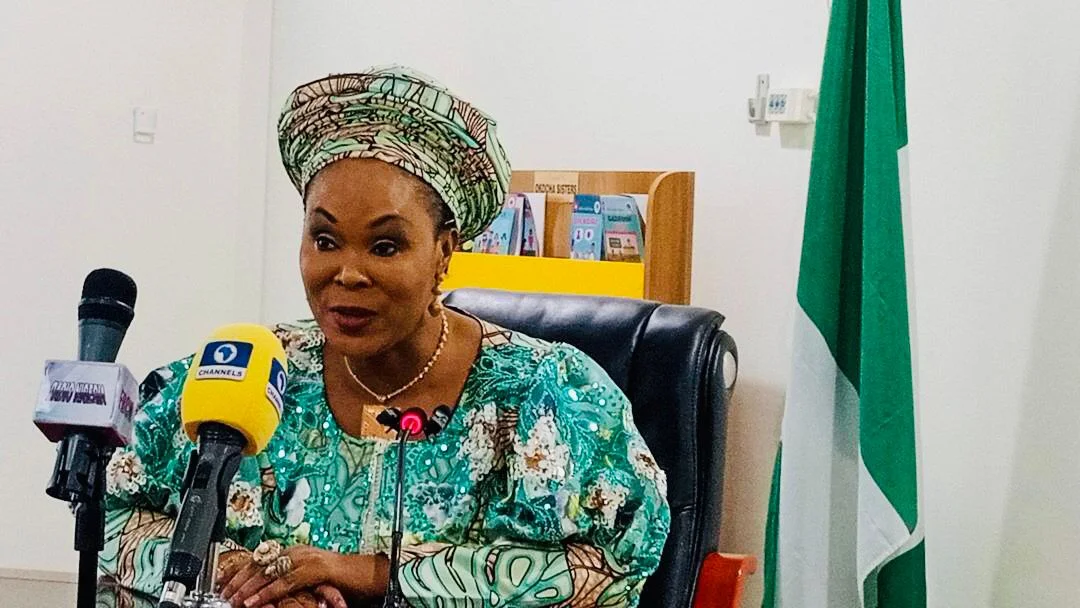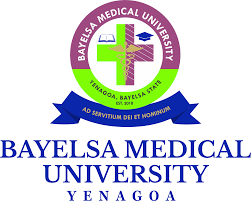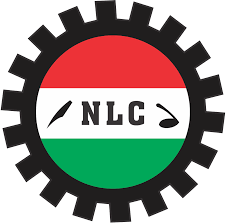NEWS
Group Lauds Niger Govt. for Allocating Funds for Family Planning

An NGO, Child Spacing and Adolescent Youth Reproductive Health, has commended the Niger government for its recent allocation of funds for the family planning subsector.
This is contained in a statement issued on Sunday by the NGO, signed by its Project Director, Dr Aliyu Shehu, and made available to newsmen in Minna.
Shehu said that the measure would give a new hope for improved health care provision for women of reproductive health in the state.
“Allocation of budget line marks a new hope for improved health care provision for women of reproductive health in the state, amidst shortages in releasing funds to the family planning subsector.
“We commend the state government on the giant stride of allocating a budget line to family planning.
“It will further enhance and fast track the processes of funding allocation and releases to the family planning sector,” he said.
Shehu said that the group met and deliberated on issues relating to child spacing in Niger.
He said the group also met to mobilise resources and generate the political will toward tackling the challenges associated with family planning and adolescent reproductive health in the state.
He said the budgetary allocation to the health sector in Niger in 2021 has dropped, compared to the allocations in 2018, 2019 and 2020.
According to him, the current allocation of 6.5 per cent to the health sector in the state has fallen short of the Abuja Commitment of 15 per cent to the health sector.
Shehu expressed concern over the lack of budgetary allocation to the family planning subsector, over the years.
According to him, “funding shortages will lead to Niger indigenes likely being responsible for their healthcare needs and this will have catastrophic consequences for women of reproductive health.
“This will in turn hamper the indices of the state and so the blueprint commitment of increasing the state Contraceptive Prevalent Rate (CPR) from six per cent to 25 per cent will not be achieved.
“This could result to more women dying from complications of pregnancy and childbirth,“ he said.
The project director called for adequate and prompt release of funds to the health sector to enhance the achievements of the state 2017 family planning blueprint commitment of increasing its CPR from 6.6 per cent to 25 per cent.
“In order to avoid catastrophic consequences to Nigerlites and women of reproductive age as a result of poor releases to family planning, there is the need for improved and adequate releases to the health sector,’’ he said.
Shehu urged the state government, the state assembly and all relevant stakeholders to do the needful by reviewing the health sector allocation in the 2021 budget and improving on funds released to the family planning sector.
“There is the urgent need to review upward the percentage allocation to health sector in the 2021 budget and for government to strengthen its commitment of allotting budget line for child spacing,“ he said.
The meeting was supported by the Development Research and Project Centre (DRPC), an NGO. (NAN)
NEWS
FG Offers 37,000 POS Machines, Health Insurance for Women

Mrs Uju Kennedy-Ohanenye, Minister of Women Affairs, says efforts are on to distribute 37,000 Point of Sale (POS) machines to facilitate financial transactions and boost women’s economic status.
Kennedy-Ohanenye, who stated this while briefing newsmen on Monday in Abuja, also said N200 health insurance monthly, totaling N2,400 yearly, would also be provided for women.
She said that the initiative was in line with President Bola Tinubu’s Renewed Hope Agenda with support from a microfinance bank, PLUG.
“We are going to traditional and community leaders, legislators, governors, states ministries for women affairs and market leaders to distribute these things.
“In that way, the right people that can manage the business, even in the villages,,will be included in what we are doing.
“Also, any woman that gets this POS is entitled to almost free health insurance, where you pay just N200 per month, making it N2,400 yearly for health insurance guaranteed by the same microfinance bank, PLUG,’’ she said.
The minister added that 300 laptops would also be distributed to women in states and People with Disabilities (PWDs) as job creation initiatives and to boost women entrepreneurship.
“We are going ahead to give eight laptops per state, totaling 300, including four to persons with disabilities.
“The beneficiaries will be trained in IT and given online jobs that will pay in hard currency,” she said.
On the Pink Riders Initiative, the minister explained that the project would take off in army barracks to ensure the safety of the women before it would be explored in other parts of the country.
“They are supposed to be women operating the tricycles to feed their homes, take care of themselves and save money to purchase another, and also return small money to the ministry as it is not free, but subsidised.
“When they save up to N500,000 to N600,000, the ministry will support them to get a second one and enable them pay off their debt quicker.
“We are starting them in army barracks for them to have security,” she said.
She added that the ministry, in collaboration with the army,,have partnered on agriculture programmes, to provide security in farmlands that would ensure massive food production at subsidised rates.
The minister, while reiterating government’s commitment towards protecting the rights of women and children, added that the establishment of mobile courts had been enforced for speedy prosecution of offenders and justice for survivors. (NAN)
NEWS
Stop Purchasing Petrol-powered Vehicles, Tricycles, Generators – FEC to MDAs

The Federal Executive Council has directed that all new vehicles, generators or tricycles procured by government and its agencies must be powered by Compressed Natural Gas (CNG), solar or electric.
This is in line with the administration’s commitment to ensure energy security, drive utility and cut high fuel cost in the country.
The council, chaired by President Bola Tinubu, at the State House on Monday, reiterated that there was no turning back in the energy reforms initiated by the administration.
It also ordered all government ministries, departments and agencies to henceforth procure only compressed-natural-gas-powered vehicles.
“The President’s directive is also in furtherance of Nigeria’s effort to transit to cleaner energy as CNG-enabled vehicles have been adjudged to produce lower emissions, even as they present a more affordable alternative for Nigerian energy consumers.
“This nation will not progress if we continue to dance on the same spot. We have the will to drive the implementation of CNG adoption across the country, and we must set the example as public officials in leading the way to that prosperous future that we are working to achieve for our people.
“It starts with us, and in seeing that we are serious, Nigerians will follow our lead,” presidential spokesman Ajuri Ngelale had said in a statement.
He said this was line with the President’s commitment to effectively harnessing the nation’s gas potential, alleviating the burden of high transportation costs on the masses while enhancing the standard of living of all Nigerians.
Affected by the order, according to sources, are new requests by Nigeria Customs Service and the Shipper’s Council, an agency of the Ministry of Marine and Blue Economy which had sought approval to buy several hundreds of operational vehicles to be powered by petrol.
The council approved the requests but said they must be CNG vehicles.
The Tinubu administration, which launched the Presidential Compressed Natural Gas Initiative (PCNGi) in October 2023, plans to roll out about 800 CNG buses, 4,000 CNG tricycles and 100 electric buses in the first phase in the next few weeks.
“Government believes its policy will unlock new investments in renewable energy, solar panels and lithium batteries.
“It also believes that the policy will be climate friendly and reduce inflation as it will slash costs by about 60 per cent,” the source said.(NAN)
NEWS
Entrepreneurship: FG Earmarks N10m Each for 5,000 Corps Members

The Federal Government says it plans to empower at least 5,000 Corps members with N10 million each to fund their entrepreneurial ventures upon passing out of the NYSC scheme.
The Minister of Youth Development, Dr Jamila Ibrahim, revealed this on Monday in Abuja, during the opening ceremony of the maiden meeting of National Youth Service Corps (NYSC) management with heads of Corps Producing Institutions (CPI) in Nigeria.
According to her, this is in line with the proposed NYSC reforms which will take place soon, adding that it was different from the Nigerian Youth Investment Fund programme for 2024.
“I will be inaugurating a team to undertake the review, restructuring and reforms of the NYSC.
“The thrust of these reforms will be centred on imbuing participants with an entrepreneurship mindset and making skills development the core of the programme.
“Though that is already part of the objectives carried out by the scheme, the aim is to partner with it to strengthen the mandate.
“How do we make the scheme more efficient, more effective and more beneficial to both the nation and the Corps members?
“So, we envision a future where the NYSC programme is not only self-sustaining, but also a revenue generating programme within the next five years.
“To achieve this, we will institutionalise the NYSC ventures as an investment and asset management outfit,” she said.
The minister said that this would enable the Federal Government to leverage and properly manage the vast assets of the NYSC and make strategic investments in various sectors.
She listed the sectors to include agriculture, manufacturing, garment making, communication and Digital Banking.
She said that the initiative underscored the commitment of the present administration to invest in youth-led entrepreneurial ventures as a step towards youth contribution to Nigeria’s journey towards a trillion dollar economy.
“The National Youth Skills programme will play a pivotal role in these reforms. While typically a 12-month programme this year, we’ll start a six months abridged version.
“We expect the ventures funded to emerge from this programme in various strategic sectors driving innovation and economic growth,” she added.
Ibrahim urged the participants, as the custodians of higher education in Nigeria, to bear the profound responsibility of nurturing the intellectual, moral and civic capacity of the nation’s youth.
The Director-General of NYSC, Brig.-Gen. Yusha’u Ahmed, said that the decision to initiate the direct interface with Vice-Chancellors, Rectors and Provosts came as a result of the scheme’s desire to elicit more decisive actions regarding the roles of their institutions in the mobilisation process.
He said that the meeting was aimed at creating strategies for the elimination of identified flaws and ensuring a more seamless mobilisation process.
“Over the years, we have thoroughly examined the process and identified avoidable problems while constructive engagements with relevant stakeholders have led to a number of resolutions aimed at addressing them.
“However, some CPIs are not doing enough on the implementation of these decisions.
“We have also observed that the delegation of the roles of principal officers of some institutions to their subordinates is partly responsible for the shortfalls and abuses that have bedeviled the mobilisation process, including the presentation of unqualified persons for enlistment.
“I am, therefore, confident that this meeting will elicit greater commitment from these highly respected stakeholders,” he said.
While declaring the meeting open, the Minister of the Federal Capital Territory, Mr Nyesom Wike, said the need for adoption of innovative strategies to surmount challenges and enhance best practices for the engagement of young graduates in national development efforts could not be over-emphasised
Wike, represented by the Mandate Secretary, Women and Children Affairs, FCT Administration, Mrs Adedayo Benjamins-Laniyi, added that it was gratifying that the scheme was focused on enhancing the efficiency of its operation.
This, he said, was through the adoption of technology-driven approaches in data collation and processing for mobilisation and deployment purposes.
“I encourage you to continue to optimise the IT solutions for accuracy and greater efficiency. I am aware that this meeting is maiden and a crucial step in addressing critical issues pertaining to the effective implementation of operational policies of the scheme.
“I commend the decision of the NYSC to periodically bring critical stakeholders together for brainstorming on the best strategies for greater success, which aligns perfectly with the contemporary global best practices for achieving desired results,” he said.
The minister urged them to participate actively and offer insightful contributions, adding that he was confident that the all-important engagement would pave way for a more responsive, efficient, and impactful NYSC. (NAN)




























